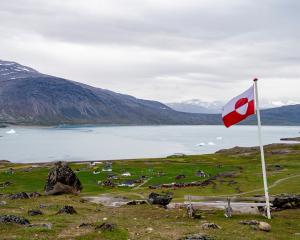
Now, thanks to some DNA detective work, Dr Erica Newman and her mother, Beverly Thomas, who was adopted at birth from her Pākehā mother and Māori father, have been united with family in Australia.
"We finally found out. At the age of 73, mum found out who both her parents are," Dr Newman said.
In 1997, Ms Thomas discovered the name of her Pākehā birth mother, but she had already died.
But she had yet to track down any living relatives.
Determined to find out their whakapapa, they continued to search for their Māori relatives through various DNA tests.
An Ancestry DNA test taken in 2020 revealed a close relative of Ms Thomas was living in Australia.
It was this test that led her to discover she had not only a niece, but also a sister.
Ms Thomas and her daughter, Dr Newman, spent time getting to know them online and then decided to visit for a month in July.
"When people talk about adoption, they talk about reunions, but it's not actually a reunion, because we had never met these people before," Dr Newman said.
She explained her mother’s apprehension over meeting her birth sister.
"It was a bit like - how do you work these things out? How do you actually form a relationship with people who are your siblings, but you weren't raised with them?"

"They've even went away for a few nights together and they had a ball. But the one thing I really noticed was how much lighter mum seemed after."
She described the experience as "weights lifted off" and felt lucky her aunt had accepted them with open arms.
"She was already calling me niece and mum her sister and all that. It was very welcoming, very embracing, but you kind of think ... is this real?"
Dr Newman holds a doctoral degree and is a lecturer at Te Tumu - The School of Māori, Pacific and Indigenous Studies.
She won the Marsden Grant, which she used to help fund her research in adoption laws and identity.
Because of the "complete break theory" in New Zealand's adoption laws, Dr Newman’s mother never had access to details of her birth parents or her whakapapa (genealogy).
They now know more about their whakapapa and plan to visit their Ngāpuhi marae next year with their newly found family.
Dr Newman was nervous and excited to meet her extended family for the first time.
"These are things that you can take for granted, if you're not adopted. They know their whakapapa, so it's something that's always been there, it's part of who they are, it’s a part of their history, how they understand themselves and how they understand the history of their people. Whereas adoptees don't have that.
"You can kind of feel floating and untethered, you're waiting to ground, trying to get your feet on the whenua, which can be really hard, especially if you don't know where your whenua is."
New Zealand’s Adoption Law Reform has been put on hold, which Dr Newman described as a shame as she felt there was "no place in society for adoption any more".
"If I hadn't gone on this journey, and having mum’s support as well, then we would still not know. So that could mean that my great grandchildren might want to know, and that makes it even more difficult to connect, to understand who they are and where they're from."
She felt very lucky to finally have her questions answered and was grateful to have learned about their history.
"It does make me feel more grounded. But I think that total grounding for me will come when we go up North and visit the marae."
Dr Newman’s next step is to travel throughout New Zealand speaking to different iwi about safe pathways for adoptees and descendants to connect with their iwi, hapū and marae as well as processes for registering.











